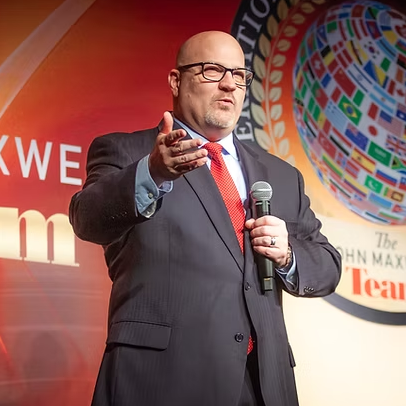When is it Time to Lower Price?
Pricing plays a pivotal role in building or destroying trust in business relationships. When your pricing strategy leads to a loss of trust, it can significantly harm long-term customer relationships. Understanding how pricing can destroy trust and knowing when to adjust it are essential steps for maintaining loyal customers.
It doesn’t matter whether your industry is banking, insurance, or financial services, at some point in time, everyone deals with pricing issues. The question today is, what do you do when a customer is paying more than what you’d be willing to charge to keep them? The bottom line is, when is it time to lower the price? Is it before or after the customer finds out that you are willing to charge less for the same service? Is it before or after the customer learns someone else is paying less? Is it before or after they shop your rate and find a cheaper solution?
If you’ve read my articles before, you know that I am ALL about the customer. Selling is hard enough, but to lose a hard-earned customer over an issue that could have or should have been fixed long before it became an issue is out of the question! When you hear “I found a lower price with one of your competitors”, it’s often too late.
Dealing with Price Objections
Dealing with price objections isn’t the issue. It’s how we deal with them that makes all of the difference. Let me give you a few bad examples on how to lower the price:
Example #1: Mobile Carrier Offer
A few months ago, I received an offer from another mobile carrier that would reduce my bill by over $100/month, give me four new phones, and pay all my termination fees. It sounded really good, so I called my existing carrier and told them that I was leaving. They asked the typical questions: “Why are you leaving?”, “What are you being offered?” followed up with: “Let me see what we can do.”
They came back with an offer to lower my bill by a little over $100/month and another meg of data. I declined and closed my account. They waited until I was upset and had a better offer before they provided me any options. They lost a customer and $3,600/year in revenue!
Example #2: Home Security System Offer
I have been paying $60/month for my home security system since 2012. I’ve been complaining about the “price” I’ve been paying for a while, so yesterday I decided to make a switch. When I called to tell them I was leaving, they offered to drop the price from $60 to $45. I told them they were still much higher than what I had been offered. They offered to drop it another $15 to only $30/month.
Wow! They were willing to drop my price 50% to keep me, but they didn’t do anything until I was upset and ready to leave. I declined and closed my account. They lost a customer and $720/year in revenue.
Example #3: Lead Generation Tool Offer
A customer of mine needs a lead generation tool to find new prospects and sort them by SIC Code. I subscribed to a service a few years ago and told them I’d look into it for them. I contacted the salesperson via the chat option found on their website. The following conversation occurred:
Mike has joined the conversation.
Mike: Hi, how can I help you?
Gary: What is the monthly cost for Professional?
Mike: Are you wanting B2B or B2C?
Gary: B2B and only need one user.
Mike: The professional B2B basic comes with unlimited view and saved searches and 500 downloads of unique business for $149/month. If you want view-only with no downloads, it’s only $99/month.
Gary: Sounds a bit pricey for my needs. Thanks.
Mike: I can get you into our Labor Day special for $120 instead of $149, or the other package for $75 instead of $99.
Gary: Why didn’t you tell me about the special BEFORE giving me standard pricing, considering the special is going on NOW???
Mike: They just released it this morning.
Gary: So when I asked for the pricing, a good response would have been we have a special going on until Labor Day (or starting on Labor Day). Had I said yes to your original amount, I’m pretty sure you wouldn’t have told me about the special.
Mike: Is there anything else I can help you with?
Gary: LOL.
Needless to say, they did not get the order and cost themselves at least $1,200 annually.
What These Examples Have in Common?
What do all of these bad examples have in common? They are all REACTIVE efforts instead of PROACTIVE solutions in helping the customer. In all three examples, the supplier could have sent a communication stating that because the customer had been a loyal customer, they were offering a new lower rate as a way of saying thank you (and let’s not forget another 2-year contract). I would have felt appreciated and would have most likely never price shopped.
When to Lower the Price?
So the question becomes, how and when do we lower a price for a customer that is willing to pay more? The not-so-simple answer is when losing a customer, the relationship, the referrals, your reputation, trust, and all of their revenue, doesn’t justify the extra margin. What value are you giving for the extra margin? Does the client know and agree? Are you still actively working to improve the client’s position?
If the answer to these questions is yes, then there’s a good chance you are fine. If not, you better step up your game or be ready to face losing the client.







